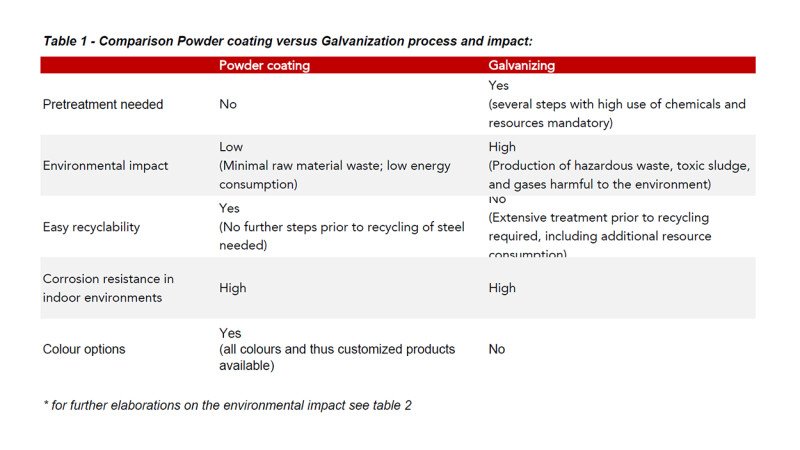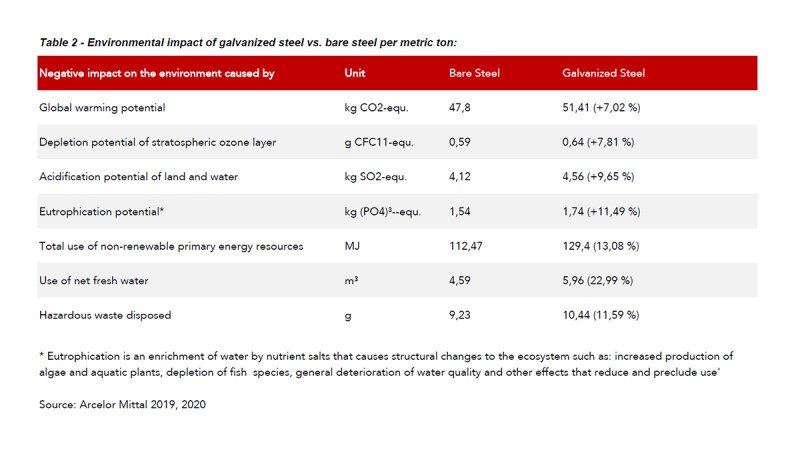-
Applications
-
Product families
-
About Bruynzeel
-
Highlights
News
Galvanized steel and its impact on the environment
13-05-2022
When you are in the stage of choosing your storage solution for your documents and items, there are a lot of factors to keep in mind. It's hard to know all the advantages and disadvantages of all the choices you will be faced with. One of the choices you have to make, is in which material you want to store your objects in. Often this choice is made unconscious and not really evaluated for the consequences it has.
A recent scientific study on the galvanization process of steel suggests that customers should refrain from choosing galvanized materials, especially for indoor environments due to the impact the material and the galvanized steel fabrication have on the environment.
So, let's become conscious about these consequences and improve our world's health!
Galvanized steel is known for its good corrosion resistance, cheap production and easy maintenance. Yet, the environmental implications of the galvanization process remain widely unnoticed and unconsidered. Besides an extensive resource and raw material requirement, the galvanization industry is responsible for – amongst others – producing toxic heavy metals, gases and sludge’s as by-products of the production process. For outdoor applications and building structures that have to withstand decades of weather conditions without losing their structural properties, the advantages could outweigh the negative effects. For most indoor applications however this is totally unnecessary. The environmental impact in comparison to bare steel is shown in table 1 and is self explanatory.
For this reason, alternative and more sustainable coating solutions, such as powder coating, increasingly gain popularity in the steel industry and present a valuable alternative with equally high-class results. A short overview of the advantages and differences is shown in table 2.
Still in doubt?
The previous examples are all about the negative impact of the galvanization process on our planet. Now let’s think about human health. Did you know that the Food and Drug Administration (FDA) has issued a food code that doesn’t allow galvanized materials (tools and surfaces) to be used in contact with acidic food? Such a warning was issued with regards to the health implications of unusually high amounts of zinc which can cause various serious health issues and diseases.
In summary it should be an easy choice to choose powder coated steel material for most indoor applications as galvanized steel puts so much pressure on the environment both from the production process up to the recycling stage. As sustainability and a circular economy are becoming more important than ever, companies will have to start looking at their own sustainability models and the contribution they can make to save our planet and improve the health and wellbeing of its inhabitants! According to the scientific studies used for this article it seems very clear that consciousness and awareness beyond the things we see are really needed to make the right choices!
Sources:
Arcelor Mittal (2019): Environmental Product Declaration as per /ISO 14025/ and /EN 15804/. Hot dip galvanized steel with pure zinc coating. Hg. v. Institut Bauen und Umwelt e.V.
Arcelor Mittal (2020): Environmental Product Declaration as per ISO 14025 and EN 15804. Cold Rolled Steel Coils. Hg. v. Institut Bauen und Umwelt e.V.
Research Paper “The Galvanization Process – An application-oriented review” Holy Shit. Studentische Cradle to Cradle Beratung gGmbH (2020), Scientific Validation & Endorsement Prof. Dr. Michael Braungart, Leuphana University Lüneburg, Fakultät für Ethik und Transdisziplinäre Nachhaltigkeitsforschung
FDA Food code 2013 4-101.15 Food and Drug Administration

